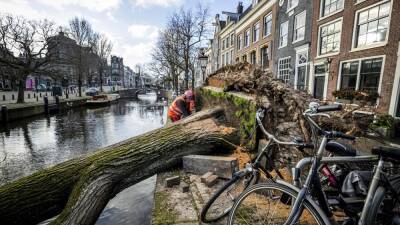Hard data blows apart UK rhetoric on leading the way to a green economy
The government has big plans for the green economy. There are targets galore: 2m skilled jobs by 2030, sale of petrol and diesel cars to be phased out by 2035, a net zero carbon economy by 2050.
Having been the birthplace of the first industrial revolution in the 18th century, the idea is that the UK can again lead the way in the next phase of technological development. There is a 10-point plan for a green industrial revolution as a statement of intent.
All of which sounds mightily impressive. The problem is the claims of global leadership don’t tally with the hard data. Turnover in the low carbon and renewable energy sector was the same in 2020 as in 2014. The number of people employed has actually fallen by 28,000 to just over 200,000.
To take a specific example, at the last count there were only 2,300 people working in the booming offshore wind sector – down by a third since the middle of the last decade. The reason is simple. Unlike oil and gas rigs, nobody works full time on the turbines and their manufacture has been outsourced to other countries. It is the same story in solar, where employment has dropped by 40% to 4,300.
To be clear, the lack of tangible progress is not due to the pandemic because both jobs and turnover – according to the latest data from the Office for National Statistics – were flat-lining even before the arrival of Covid-19.
There are those who think the picture is brighter than the ONS figures suggest. Venture capital, they say, is alert to the opportunities to make money out of greening the economy and investment in new businesses is expanding fast.
Even if the optimists are right, there is a long way to go. The problem could be a lack of commercially viable ideas, a lack of finance, a lack of
Read more on theguardian.com





















